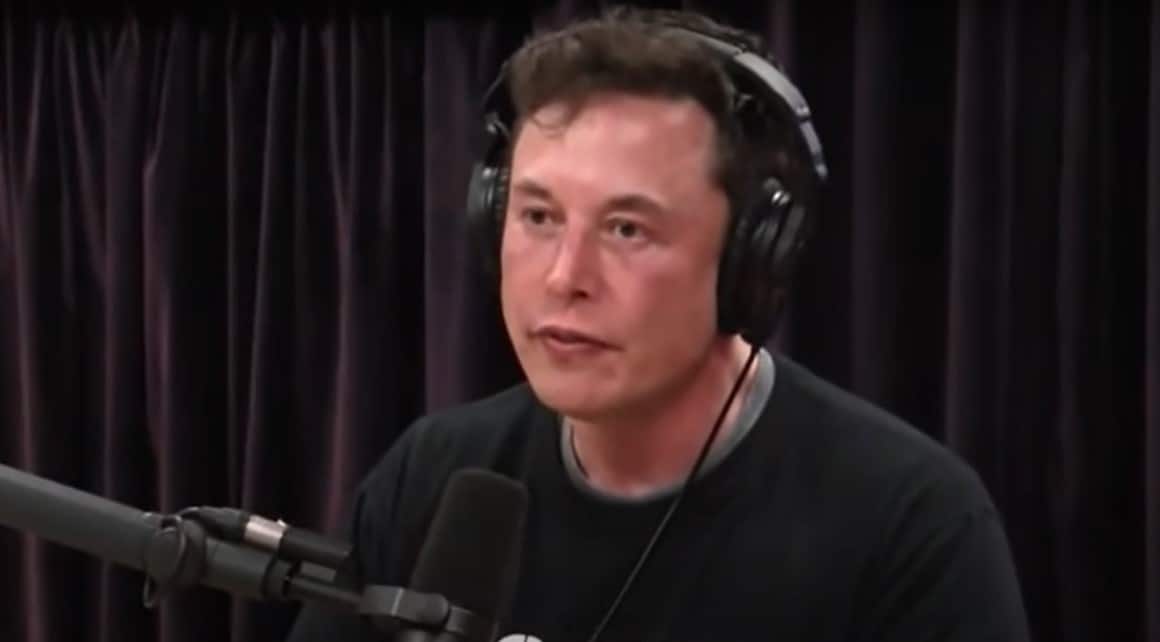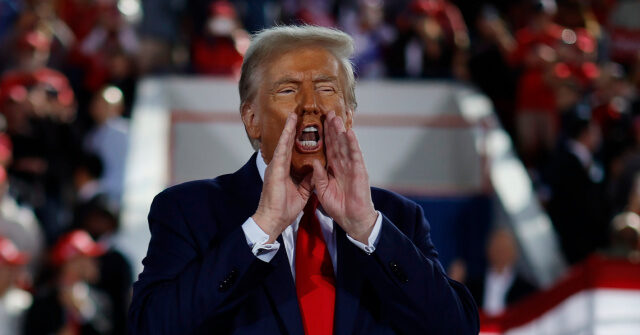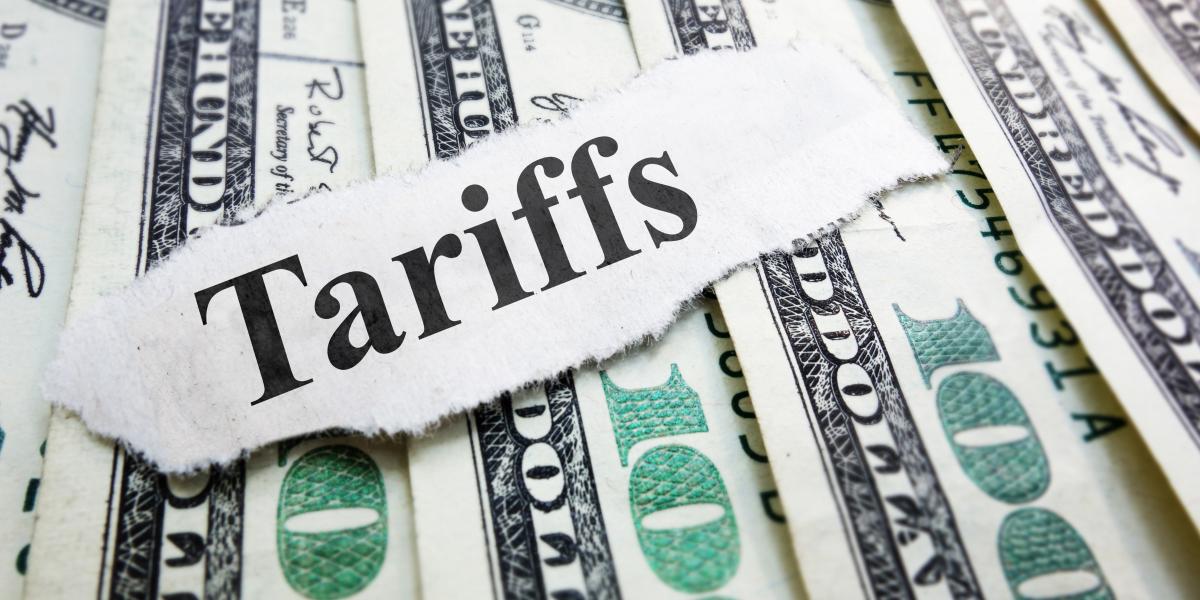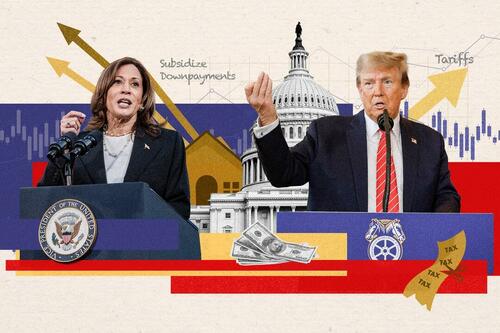US judge declines to block Elon Musk’s $1 million election giveaways
A Pennsylvania judge declined on Monday to halt billionaire Elon Musk’s $1 million giveaways to registered voters in US election battleground states. Philadelphia District Attorney Larry Krasner, a Democrat, sued Musk and his pro-Trump political action committee, America PAC, last week, calling the $1 million awards “an illegal lottery scheme.” Krasner had asked that the […]
The post US judge declines to block Elon Musk’s $1 million election giveaways appeared first on Insider Paper.
RFK Jr Says Trump Plans To Remove Fluoride From American Drinking Water
RFK Jr Says Trump Plans To Remove Fluoride From American Drinking Water
The debate over the forced medication of the American population by the government is a long standing conflict. Today it is more important than ever after the draconian efforts of Democrats to create a path to forced covid vaccinations using economic coercion. The fight over experimental mRNA vaccines and vaccine passports has had an interesting side effect – The public is now motivated to question many other medical mandates and FDA standards with suspicious origins.
Water fluoridation is one of those standards.
Robert F. Kennedy Jr, now part of Donal Trump’s campaign dream team, is to be put in charge of US health initiatives should Trump win the election this week. Kennedy’s secondary career focus (beyond politics) has been exposing faulty medical establishment practices and food industry corruption. He was a stalwart opponent of covid mandates and forced vaccination attempts and it’s fair to say he is widely hated by the government funded medical elite and the media.
Kennedy announced this week that he has turned his sights on water fluoridation, and says Donald Trump plans to set policies in motion to end fluoridation if he returns to office.
On January 20, the Trump White House will advise all U.S. water systems to remove fluoride from public water. Fluoride is an industrial waste associated with arthritis, bone fractures, bone cancer, IQ loss, neurodevelopmental disorders, and thyroid disease. President…
— Robert F. Kennedy Jr (@RobertKennedyJr) November 2, 2024
Fluoridation of the US water supply has been a key battleground since it began in 1945. The practice was not widely accepted by the scientific community or the dental community back then, but that was before government manipulation of medical and scientific research through subsidies became a standard.
After a few decades of indoctrination in universities and the growing habit of the medical community to police its own when it comes to investigating certain subjects, very few researchers had the courage to publish evidence contrary to the narrative that fluoride in the water supply was anything other safe.
To question fluoride treatment is almost as taboo as questioning climate change if you are a scientist. It’s just not done, but that attitude is completely contrary to the scientific method. Try to study the subject online and most search engines will bury you in hundreds of “Fact Check” articles claiming that questioning fluoridation is pure conspiracy theory.
The early days of mass fluoride medication are as shady as any conspiracy could possibly be. Rumors of fluoride testing on unwilling subjects by the Third Reich and the Soviets abound, but there is little concrete evidence to confirm the claims that this was done to “control the population.” The Soviets did in fact pass a directive in the 1960s for mass fluoridation of the water supply, and this ended in the 1990s. The reason why is not officially admitted.
The theory was that the chemical caused docile behavior and reduced IQ, making the population easier for the elites to manage and control.
Here are the facts:
1) Fluoride (or sodium fluoride) is a toxic chemical byproduct of the aluminum and fertilizer industry often used in rat poison. It is also a cumulative agent, which means it continues to collect in the human body over time when ingested.
2) Initially, these industries pumped fluoride gases into the air, causing health concerns and lawsuits. This forced the manufacturers to capture the gases and reduce them down to a chemical sludge. This is then distilled into a powder which makes it easier to contain and transport. The problem was, the chemical was expensive to dispose of safely under environmental protocols.
3) Trace elements of natural fluoride already exist in many water supplies. In some places with higher fluoride content in ground water in the early 1900s, residents were found to suffer from a condition called “brown teeth”. Scientists also found that people with brown teeth also had lower instances of cavities. Eventually a correlation to fluoride was established by a man named Trendley H. Dean.
4) Dean, a dentist and scientist, ultimately led the charge for mass fluoridation in US cities. Another entity also lobbied the government for mass fluoridation: Aluminum giant Alcoa.
5) And here’s where it gets shady – Trendley Dean worked for the NIH and the Public Health Service, which was run by Andrew Mellon.
6) Wealthy elitist Andrew Mellon, a founder of ALCOA and one of its major stockholders, was the U.S. Treasury Secretary from 1921-1932, when the PHS was still a division of the Treasury Department. It was therefore Mellon’s PHS that ordered Dean to study fluoride in the first place. In other words, Mellon and Alcoa had Dean conjure up the very studies that would change fluoride from a toxic waste into a public health miracle.
7) This is yet another example of the revolving door between corporations and government health agencies.
8) Not only did industry magnates no longer have to pay for expensive chemical disposal for fluoride, they stood to make millions selling the poison to the government for water treatment. After that, the medical community (under Mellon) hyped up fluoridation as a magical cure for bad teeth.
9) Dozens of recent studies now confirm what many people suspected decades ago: Fluoride does in fact decrease IQ. Children are especially vulnerable. It is also proven to cause weaker bones, thyroid problems and a host of neurological issues. Several published articles have postulated that fluoride could be producing alterations in mitochondrial DNA; mitochondrial DNA has many implications in various mental disorders.
10) Federal Courts have ruled against the EPA in the forced fluoridation of water. They have ordered officials to take action over concerns about potential health risks from currently recommended levels of fluoride in the American drinking water supply.
11) Trendley Dean claimed that tooth decay was reduced by 60% in his studies on fluoride. More recent studies claim a more modest 15% to 25% reduction.
12) Around 70% of US communities fluoridate. Communities that have stopped fluoridation have not experienced a significant increase in dental decay.
Even if fluoride does have legitimate value as a treatment for tooth decay, this is ultimately irrelevant. The dangers involved in using the toxic chemical in public water far outweigh the potential benefits. The suspicious history of the practice also needs to be investigated. It is better to err on the side of caution and not lace our water supply with an industrial waste product.
Plenty of alternatives exist in our modern era for healthy teeth. Beyond that, the government should not be given authority to mass medicate the population. Politicians are not qualified enough or trustworthy enough to make such decisions. Ask yourself, is the government really that concerned about your teeth, or is something else going on?
Tyler Durden
Mon, 11/04/2024 – 18:00
North Korea launches ballistic missile toward East Sea
North Korea launched a ballistic missile early Tuesday toward the East Sea, South Korea’s military said, referring to the body of water also known as the Sea of Japan. The launch comes just days after Pyongyang said it tested an intercontinental ballistic missile, prompting condemnation from the South, the United States and Japan, with the […]
The post North Korea launches ballistic missile toward East Sea appeared first on Insider Paper.
Keir Starmer to deploy drones as part of £75 million funding package to help UK officials detain migrant smugglers
“We have got to combine resources, share intelligence and tactics, and tackle the problem upstream, working together to shut down the smuggling routes.”
Donald Trump Rallies in Raleigh: ‘We’re Leading,’ ‘Ours to Lose,’ ‘Vote!’
Former President Donald Trump rallied supporters on Monday in Raleigh, North Carolina, a swing state that some political experts believe he will win.
The post Trump Rallies in Raleigh, North Carolina: ‘We’re Leading,’ ‘Ours to Lose,’ ‘Vote!’ appeared first on Breitbart.
Israel’s Foreign Ministry cancels agreement with UNRWA
Last week, a law was passed by the Knesset severing all ties between Israel and UNRWA after employees of the agency were accused of participating in the Oct 7, 2023 attacks and the UN of failing to adequately address it.
A Brief History of Tariffs and Stock Market Crises
Tariffs don‘t just raise consumer prices. They also affect capital flows and on numerous occasions have triggered stock market crises. What tariffs don‘t bring is prosperity.
Leaked docs show Algerians knew women’s Olympic boxing champ Imane Khelif was male with micropenis, internal testes: report
The clinical report revealed that an MRI was conducted on Khelif, with showed the boxer had no uterus, and in its place were internal testicles and a “micropenis” that resembled an enlarged clitoris.
NewsWare’s Trade Talk: Monday, November 4 | NewsWare‘s Trade Talk
S&P Futures are higher this morning as the markets enter into a week that will be full of market moving headlines. The U.S. elections, Central Bank decisions, and earnings reports will be in focus. The Fed has pushed back their announcement to Thursday due to the election. INTC & DOW are being removed for the DJIA, they are being replaced by NVDA & SHW. Changes are taking place before the open on Friday November 8th. Middle East tensions are on the rise as Iran is threating retaliatory action on Isreal with more powerful warheads. Boeing striking worker are voting on a new proposal today that could end the strike. In Europe, markets are cautiously higher as commodity related stocks gain. Oil prices are spiking higher as Iran tough talk on a pending strike on Isreal is elevating tensions in the region.
Next US President To Face Slowing Economy, Experts Warn
Next US President To Face Slowing Economy, Experts Warn
Authored by Petr Svab via The Epoch Times (emphasis ours),
Regardless of who wins the election, the next president likely will have to deal with an economic slowdown next year, several experts told The Epoch Times. The government may try to intervene, but there’s a risk any remedies will cause harm, they said.
On paper, the U.S. economy is chugging along nicely. Unemployment is low, the markets are up, and the gross domestic product (GDP) came in 3 percent above inflation in the second quarter. Third-quarter GDP is expected to climb 2.6 percent above inflation, and median wages increased by nearly 2.5 percent (adjusted for inflation) over the past two years.
Yet, a large proportion of Americans don’t feel like the economy is working well for them.
Only about 21 percent consider business conditions “good”—a far cry from the nearly 40 percent who thought so five years ago, according to Consumer Confidence Index surveys. Self-reported family financial situation has virtually stagnated for the past year, the survey shows. Meanwhile, credit card debt is up about 16 percent over the past two years.
Economic indicators likely won’t remain as encouraging for long, said Lance Roberts, the chief investment strategist at RIA Advisors.
“I think you’re going to start looking at much lower rates of economic growth somewhere sub-2 percent growth as consumers become challenged by making ends meet,” he said.
Steve Hanke, professor of Applied Economics at The Johns Hopkins University in Baltimore, shared a similar concern.
“The economy is running on fumes and is bound to slow down,” he said via email, pointing to the shrinking of money supply in 2022–2023 that has since only partly reversed.
Since the establishment of the Federal Reserve in 1913, “there have only been four such contractions: 1920–21, 1929–33, 1937–38, and 1948–49. Three were associated with recessions, and the 1929–33 contraction resulted in the Great Depression,” Hanke said.
Financial markets should brace for a similar slowdown, according to Adam Taggart, founder of Thoughtful Money, a financial education firm.
In recent weeks, Taggart spoke to more than a dozen market analysts and noticed there’s an unusually wide disagreement on the market direction.
His best suggestion is to follow the global liquidity model produced by Michael Howell, chief executive of CrossBorder Capital, a London-based market research firm.
The model indicates that bull and bear markets in today’s economy trace liquidity: how much money is in the system overall. Howell posits that liquidity waxes and wanes in cycles. Right now, he says the market is in an upward cycle that’s likely to peak next year, signaling a slowdown.
“Just like when you throw a ball up in the air as it gets close to its apex, its speed of rise is declining,” Taggart said.
Market predictions, however, assume that “everything remains status quo next year,” Roberts noted.

As the economy slows down, letting a large number of Americans descend into poverty would be politically indigestible for whoever becomes the president. It would be expected for the administration to intervene, he suggested.
Taggart concurred.
“The system will do everything it can to fight it,” he said.
How that may happen would partly depend on who wins.
If Vice President Kamala Harris is elected and gets Congress on her side, her plan would be to institute a series of government programs, such as to finance public housing and subsidize downpayments for first-home buyers.
“That’s very inflationary,” Roberts said.
The programs would be at least partly financed through increased taxes on higher earners, which could offset the impact on government deficit. But that’s not the main issue, as Roberts explained.
“Once you start providing capital to people to go buy stuff, that massively increases the demand on the available supply,” he said.
Housing construction can’t be increased at will due to a limited number of people skilled to build them.
“You’re trying to solve a housing problem; you’re going to massively create one at that point,” Roberts said.
“If we give $25,000 to three million people to go buy houses, there’s not enough houses to buy, and they can’t build them that fast. So that’s going to be very inflationary.”

Not only would housing prices rise but also construction labor, commodities, and transportation, which all are tied to the housing supply chain, Roberts said.
If former President Donald Trump wins and gets Congress on his side, his plan would be to cut taxes, increase domestic energy production, cut regulations, and impose tariffs on imports.
Cutting taxes and regulations stimulates the economy, as does cheaper energy. Tariffs, on the other hand, could create problems, Roberts said.
Even if the tariffs are calibrated to minimize impact on domestic prices, they would “put pressure on foreign trading partners,” he said.
“It’s certainly going to ramp up a lot of the rhetoric in the market … That’s going to make the markets nervous at that point, depending on how aggressive these tariffs are.”
That has real economic impact as nervous investors are more hesitant to invest.
He also suggested Trump would press the Federal Reserve to “cut rates more aggressively.”
“The Fed’s not going to respond to that, but it’s going to give a lot of rhetoric to the markets,” he said.
“So you potentially get an environment next year where you get a bit stronger growth, but a lot more volatility—both in markets as well as the economic data.”
Taggart was skeptical that either administration would be able to cut deficits on a meaningful scale.
Hanke agreed.
“I think either administration will embrace the newfound economic religion: spend, spend, spend—with Harris pouring even more coals on the fire than Trump,” he said.
Split Congress Scenario
It could easily happen that whichever candidate wins, she or he won’t get majority in both chambers of Congress. In that case, the Congress would likely remain gridlocked, with neither party getting its way. Government spending would stay in an autopilot mode of about 8 percent annual increases, Roberts said.
“That’s the best outcome for the markets. It’s probably the best outcome for the economy, because nothing actually happens that causes a potential unexpected shock to markets.”
Read the rest here…
Tyler Durden
Mon, 11/04/2024 – 07:20














